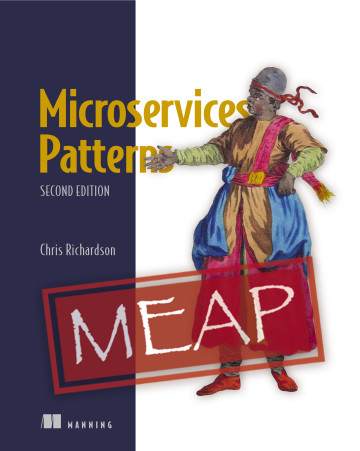The success triangle reinterpreted: it's all about fast flow
architecting success triangle fast flow team topologies architecture devops socio-technical architectureContact me for information about consulting and training at your company.
The MEAP for Microservices Patterns 2nd edition is now available
In a previous article, I described how the success triangle has evolved over the years since I first introduced it in my 2018 book Microservices patterns. The core idea of the success triangle is that the rapid, frequent, reliable and sustainable delivery of software requires three elements:
- DevOps (as defined by the DevOps handbook)
- Team Topologies
- Architecture
In this article, I reinterpret the success triangle from the perspective of fast flow.
About fast flow
‘Fast flow’ has been on my mind recently after I listened to my Susanne Kaiser’s excellent ExploreDDD talk Optimizing for a fast flow of value with adaptive, socio-technical systems. To quote the abstract:
This talk explores the synergy of Wardley Mapping, Domain-Driven Design (DDD), and Team Topologies as a holistic toolkit for building adaptive, socio-technical systems optimized for a fast, sustainable flow of value and feedback.
The key idea of fast flow is that an organization’s structure, culture and work practices along with its application architecture should be such that it delivers a continuous stream of valuable changes to its customers. The underlying metaphor is of a river flowing fast and smoothly, with no blockages or bottlenecks.
The fast flow success triangle
The primary objective of two of the success triangle’s elements - DevOps and Team Topologies - is to facilitate fast flow. The first way of DevOps is about the fast flow of changes from dev to ops. Fast flow is also a goal of the Team Topologies. The book’s subtitle is ‘Organizing business and technology teams for fast flow’. Moreover, as I previously described, the goal of the success triangle’s architecture element is to enable DevOps and Team Topologies. It makes sense, therefore, to view the goal of the success triangle to be the fast, sustainable flow of changes.
Here’s the success triangle from the perspective of fast flow.

A socio-technical architecture for fast flow
The three elements of the success triangle comprise a socio-technical system (or, as recently described in the InfoQ Software Architecture and Design Trends Report - April 2024, a Socio-technical architecture) for fast flow.
Need help with modernizing your architecture?
I help organizations modernize safely and avoid creating a modern legacy system — a new architecture with the same old problems. If you’re planning or struggling with a modernization effort, I can help.
Learn more about my modernization and architecture advisory work →
Learn more about my new public workshop Architecting for fast, sustainable flow - enabling DevOps and Team Topologies thru architecture.


 Premium content now available for paid subscribers at
Premium content now available for paid subscribers at 




